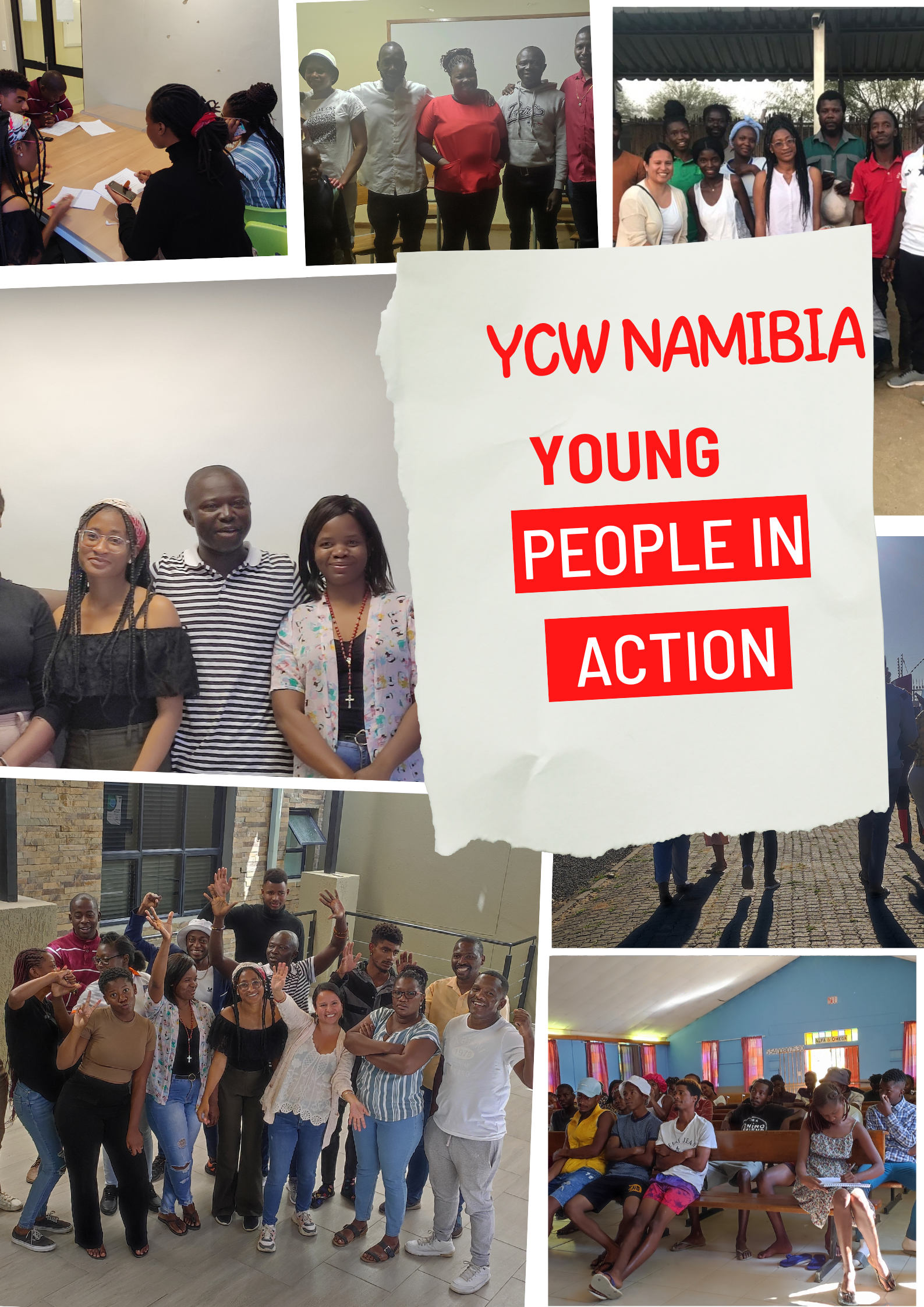
In August 2023, Ana Cecilia Salazar from the IYCW International Secretariat and John Ofori, PANAF coordinator, visited the Namibia YCW national movement. Their aim was to support new processes and promote YCW grassroots groups and the continuity of work with young workers.
The two international leaders first wanted to discover the context in which young workers lead and cope with life in their country, and one of the life testimonies they heard came from a Namibian YCW woman activist:
Guatemala YCW: Training in screen printing and sublimation to give young people access to employment
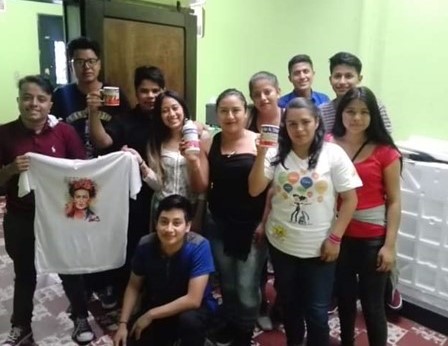
Access to employment is one of the most fundamental rights, a guarantee of dignity and an essential means of subsistence for every human being. However, in a post-conflict country marked by poverty and low school enrolment, access to this essential right remains a distant goal. The Guatemalan labor market is almost entirely dependent on the informal economy, and the few formal jobs available are under constant threat from labor flexibility. Non-compliance with labor legislation, the weakness of labor-related institutions and the partisan politicization of access to employment exacerbate the job crisis. These problems are at the root of phenomena such as rampant crime and mass migration.
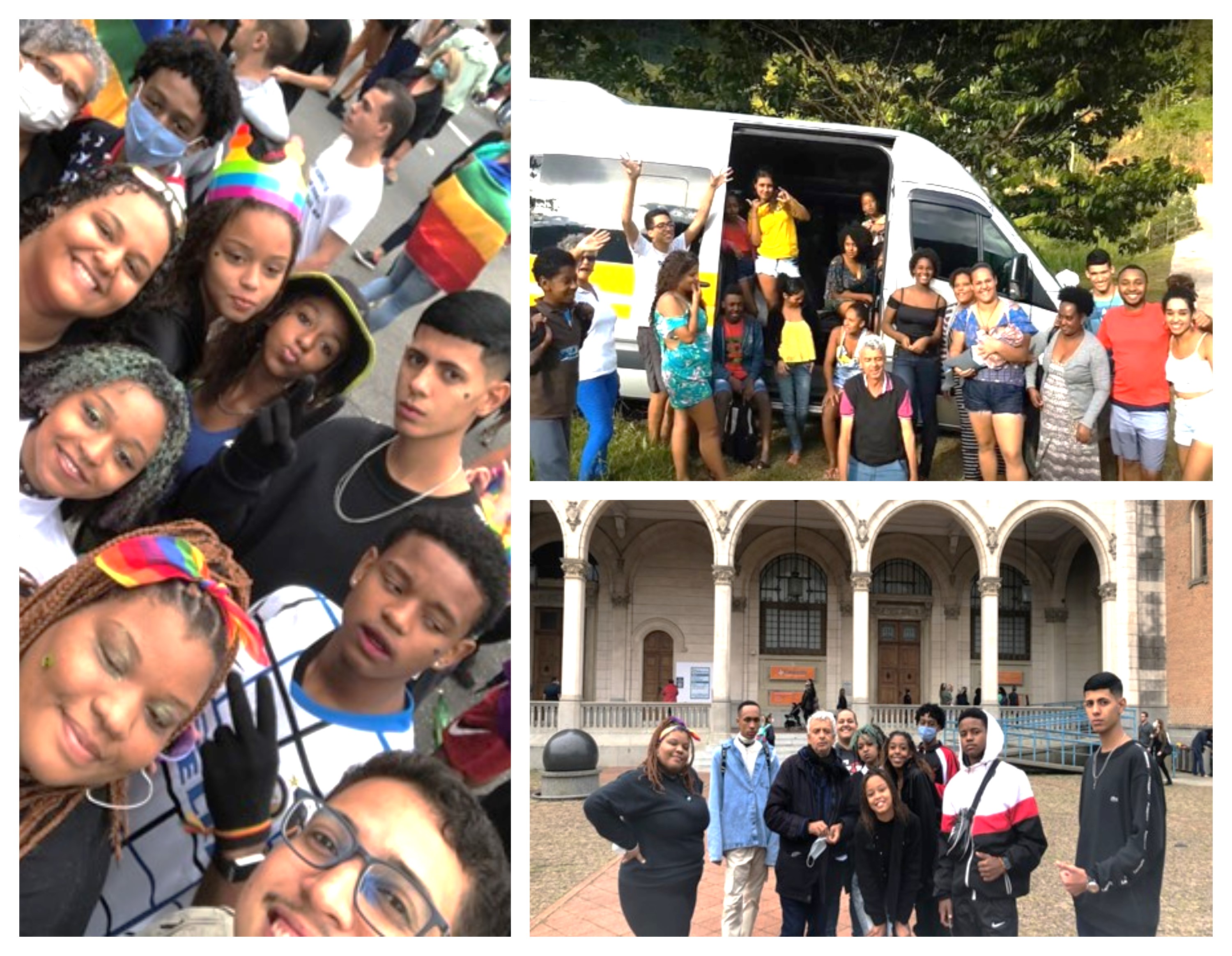
In the city of Volta Redonda, south of Rio de Janeiro, living conditions are precarious, leisure and cultural facilities are lacking, and illicit trafficking and violence are frequent. In most families, the mother is the head of household. Most young people study in precarious public schools and also seek to supplement the income of the family network. Young people are the children of workers, mostly in the informal sector.
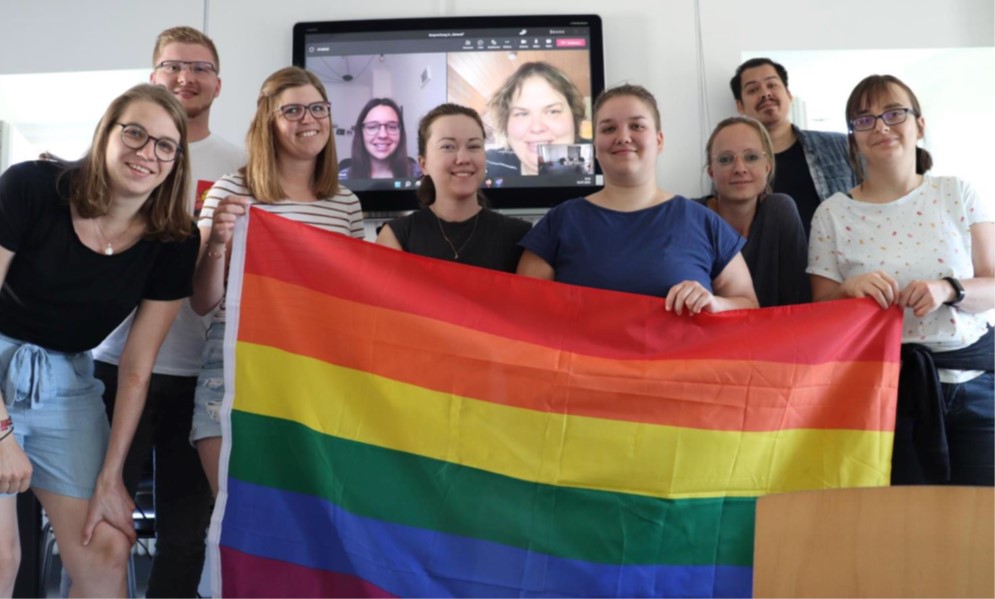
As in every other part of the world, gender inequality is a reality in Germany, a European country with a population of over 83 million. Before the German YCW held its National Action Days in 2017, the movement had already pinpointed gender as one aspect leading to inequalities in society and felt the need to deepen its analysis on the issue. Its concrete starting point was the reflection in its action group on precarious work, which had identified the connection between precarious work and gender. Decision was made to set up a national action group on gender equality.

In Mercedes, work is essentially dependent on the sea and its products. Economically speaking, fishermen's incomes are relatively low, and they can only provide for their families on a day-to-day basis. However, during the off-season (August-December), when weather conditions are unfavorable, they are out of work. Some are therefore forced to find alternative employment as carpenters or drivers in other localities.
There is no guarantee of income, security or safety in the fishermen's workplace. Their income depends solely on the fish they catch. Unfortunately, some of them suffer accidents and even death. Long working hours are also a feature of the job. Small-scale fishermen start work at 4:00 in the afternoon and finish at 6:00 in the morning the following day. Some go out to sea for 3 or 4 days and nights in a row.

A community without leaders, a lack of interest from local residents in taking care of their neighborhood, many abandoned spaces - the central park, the municipal hall, the sports fields - occupied by outsiders who were using them for drugs and alcohol.
This was the situation five years ago in the working-class, self-managed district of Villa El Salvador, south of Lima. This reality was the starting point for action by young YCW members, who involved residents in reclaiming the area, transforming the neighborhood where they lived and changing the lives of young workers and community members.
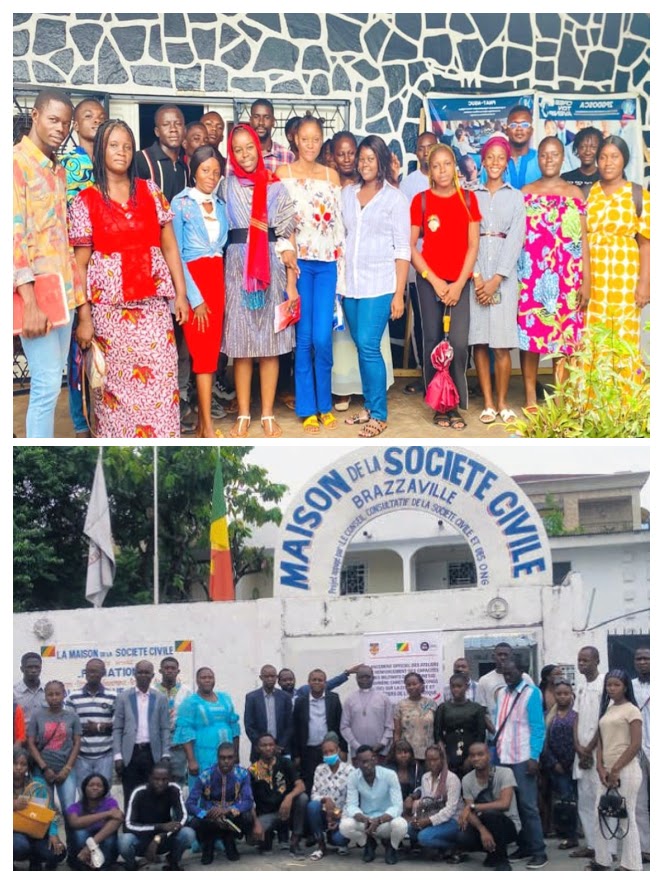
"We are delighted with everything you have told us, it has opened our eyes and awakened our consciences, because we were in ignorance. The topics covered are necessary information/tools that will enable us to get by in society. We believe that the YCW is an ideal movement for awareness-raising and social integration." Makita Sanielle Chamelia
- Fundraising Campaign of Chile YCW & Peru YCW
- Young People of Flanders Speak Up and Are Ready to Act!
- JOC Europe Publishes European Parliament Votes
- IYCW at UNESCO: Invest in Strong Social Protection
- IYCW at the ILO Conference: Who Profits Must Contribute to Ending Inequality and Discrimination
- Urgent Appeal: Put our Love in Action for YCW Haiti Following Brutal Earthquake
- 75th Anniversary of UNESCO: Youth to Take the Lead
- Solidarity campaign with the Peru YCW
- “Generation Connection”: the new national campaign of the Australian YCW
- The Liege YCW Against Police Violence
- The IYCW celebrates the International Week of Young Workers - April 24th - May 1st, 2020
- YCW Wallonia-Brussels is standing up against fascism and racism
- Work-Free Sunday is a Right!
- CAJ Germany celebrates Equal Pay Day on March 2019
- An Interview with Brenda, a Guatemalan YCW Activist Who Went to the ILO
- Temporary Work in Germany: A Testimony from Anne, 24 years old
- Migrants’ Rights are Human Rights, No Matter When or Where
- KAJ Flanders: Stop the Train of Temporary Work Abuses
- 15 March 2019 — Charleroi, Belgium: Demonstration Against Repression
- International Women's Day: IYCW Demands to Stop Gender Discrimination!



